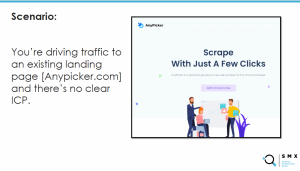— October 14, 2018
Most entrepreneurs resort to fundraising for capital. However, organizing and executing a successful funding project is a big deal and not many businesses can pull it off.
Besides the many different fields startups must carefully optimize to help their business grow, raising the capital for starting the business remains one of the most difficult struggles; many great ideas have died off without any shot at success and according to a bank survey, 82 percent of businesses fail due to cash flow problems.
Hence, entrepreneurs seek out various funding options. Though there are a couple of different options businesses can choose from, it pays to do a proper in-house review of budget, goals and target, amongst other factors, and also deeply review different fundraising alternatives while paying close attention to the pros and cons before launching a campaign.
For the popular, most sought-after funding options, below are a brief description and their pros and cons to take into account to enable businesses make an informed decision.
- Bootstrapping
Some entrepreneurs still prefer to go down the funding route used by some of the most successful companies – like Dell Computers, Apple, Facebook Inc and so on.
Bootstrapping involves entrepreneurs doing away with loans, equity or other traditional funding options while choosing to self-finance their business from personal savings or other funds at hand. This works best for business ideas that don’t require much capital from conception.
Pros:
- Full control – Entrepreneurs who bootstrap are in absolute control of the business; ranging from decision-making to implementation of ideas.
- Learning key skills – Bootstrapping provides room for entrepreneurs to learn core skills like management and the efficient utilization of available resources to drive the business forward.
- No profit sharing – A business that survives bootstrapping to a point where the business starts yielding profits will enjoy huge benefits as it is neither tied to an equity nor a loan.
Cons:
- Not all companies can be bootstrapped – Some require huge capital from conception and such large funds may not readily be raised through bootstrapping.
- Slow business growth – Handling all sectors of a business while also worrying about cash flow will definitely reduce a business’ speed of growth.
- Chances of running into debts – Businesses don’t immediately start yielding profits. It’s highly possible for a bootstrapping businessperson to run out of funds and run into loads of debts before seeing growth.
- Crowdfunding
This is one of the most popular funding options as a result of how easy recent tech advancements have made creating a crowdfunding project – and also because of its successes over the years.
The common criteria for creating a successful project involves having a unique idea and effectively communicating it to the audience, convincing them to fund the idea by showing a huge potential of growth and providing an enticing reward in return.
Crowdfunding can be effective as a funding option if well-planned and executed. Below are major pros and cons to help determine if it’s the best fit for your business.
Pros:
- No fees attached – If a crowdfunding project fails, all the funds raised will be returned to the investors and the entrepreneur will neither gain nor lose anything.
- It’s easy to set up – Platforms like Kickstarter, Indiegogo and CircleUp make it easy to start a campaign. You simply need to message the site with your idea, create a video upon being accepted and effectively market your campaign after getting published.
It aids marketing and brand exposure – A successfully funded campaign gives the business exposure even before it is launched. Also, it makes for great PR.
- Building a strong customer base – Participants of a successful crowdfunding project oftentimes turn to loyal customers after the business is launched.
Cons:
- Crowdfunding does not prove very effective for companies needing large capital. It works best if you require $ 100,000 or less.
- Requires a lot of marketing – For a campaign to be a success, it takes a lot of marketing to get the campaign in front of a lot of audience, and this marketing can often time be very expensive.
- Your idea can be stolen – Without proper protection of your idea via patent or copyright, your idea can be stolen in the process of crowdfunding.
- If failed, the project can damage your brand reputation.
- Venture capital
This funding option typically involves having ideas that have good potential of growth to convince venture capitalists (VCs) to finance the idea for high ROI. VCs provide not just financing, but mentorship and expert guidance.
After financing an idea and rendering support and assistance, VCs gain their ROI when such an idea grows and increases in value.
Pros:
- Guidance and consultation – VC firms often have a team of experienced professionals that will actively assist in HR.
- Active support – Besides funding and guidance, a VC firm will also render support on legal issues, tax and similar issues for the startup it’s funding.
- Connections and networking – Companies will get access to the professional network and connections of the VC firm.
- No repayment of loan or interests – Unlike loans, startups being backed don’t have accumulated interests to pay off. Instead, the VCs are sold some stocks/shares from the company.
Cons:
- Little control – The more money a VC invests, the more control they’ll have on the business.
- Divided ownership – VCs who invest a lot of money can hold as much as 60 percent shares in the business. This gives them more authority over the business owner.
- Low chances of getting funded – VCs only invest in the ideas they consider more promising. It’s noted in a survey that VCs look at around 400 ideas for every one which they invest in.
- Limited time range – Most VCs fund only businesses that have great chances of fetching them returns on their investment within a period of three to five years.
- Angel Investment
Angel investors are successful business people who hope to finance the birth of a promising idea or to help expand a business, while also providing mentorship and expert guidance.
It shares similar advantages and disadvantages to VC investment, with the major difference being that angel investors are often successful people or a network of wealthy individuals, while venture capitals are firms.
Also, VC push in more money to businesses than angel investors and often expect higher equity. One other difference is that from the survey mentioned in the cons of VCs above, angel investors invest in 40 ideas for about every 400 ideas they review.
- Loans
Those who can’t raise funds through any of the above resort to loans. While VCs and angel investors invest ideas for equity, loans are granted on instalment payment and interests, and the rules or interest rates differ depending on the type of loan issued and the terms and conditions of the issuer.
Pros:
- Personal loans are unsecured and unmonitored – It does not require much documentation, neither does it require collaterals or security. Also, the use of personal loan is unrestricted.
- Personal loans are easy and fast to acquire – Different platforms enable for quick availability of personal loans. Some of the platforms can help you get finance online in minutes even with a bad credit score.
- No sharing of profits or ownership – All profit and returns achieved through a loan of any kind solely belong to the business.
- Entrepreneurs can liquidate the business to pay off parts of or all the loan in the event of business failure.
Cons:
- All loans accumulate interest and this interest can add up really fast.
- The bank loan application process is usually tasking and requires a lot of details like collaterals.
Choosing a funding option
These funding options all have their advantages and disadvantages. Even after comparing the different pros and cons, it can still be difficult to decide which option to pursue. So here is an overview of points to take into account.
- Is your business/idea very technical with great potential for growth, and are you okay with divided ownership? Consider either angel investment or venture capital.
- Is your idea less technical and will entice a huge audience? Consider crowdfunding.
- Does your idea require huge capital to run it right from conception? Go for venture capital or angel investment.
- Does your idea require $ 100,000 or less? Consider crowdfunding or bootstrapping.
This post first appeared on Real Business UK
Business & Finance Articles on Business 2 Community
(61)






